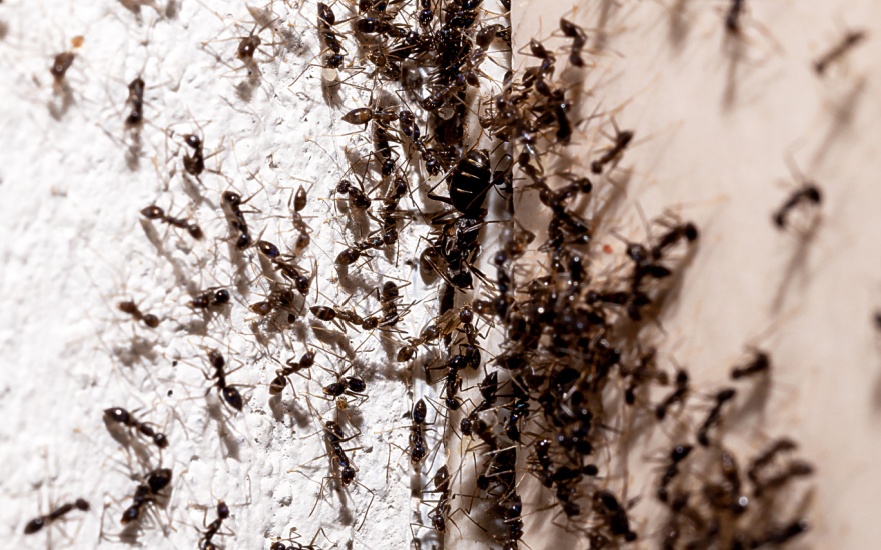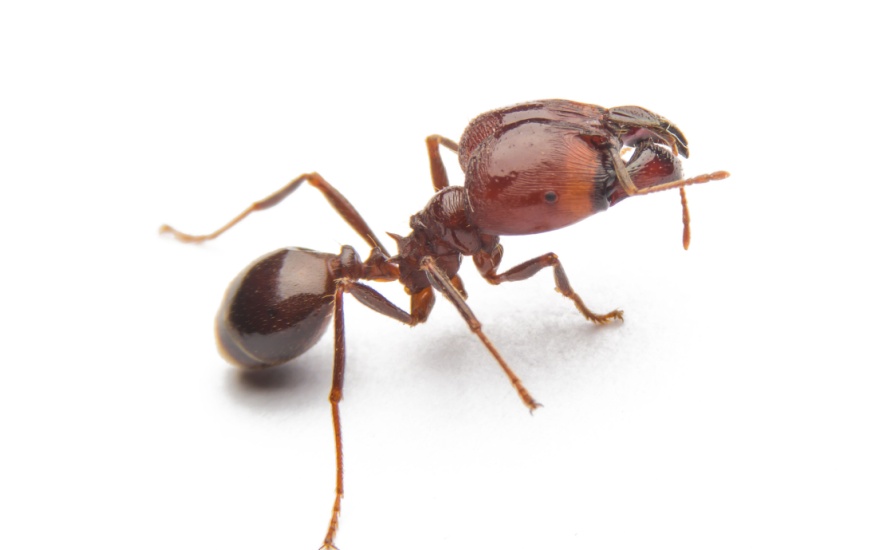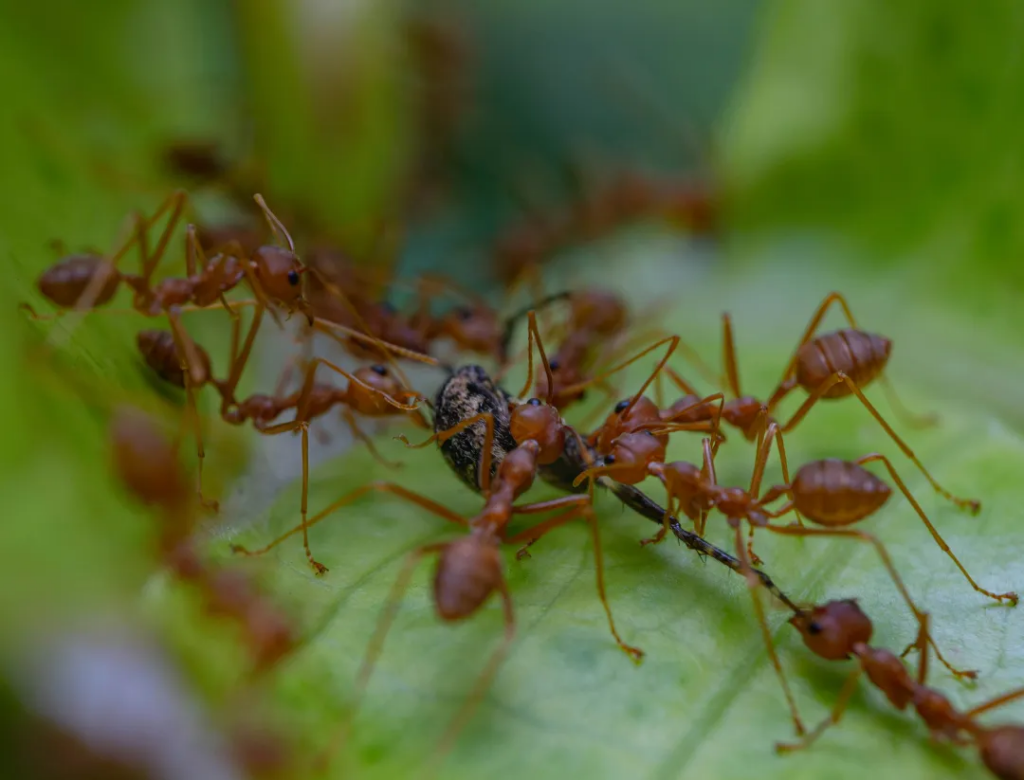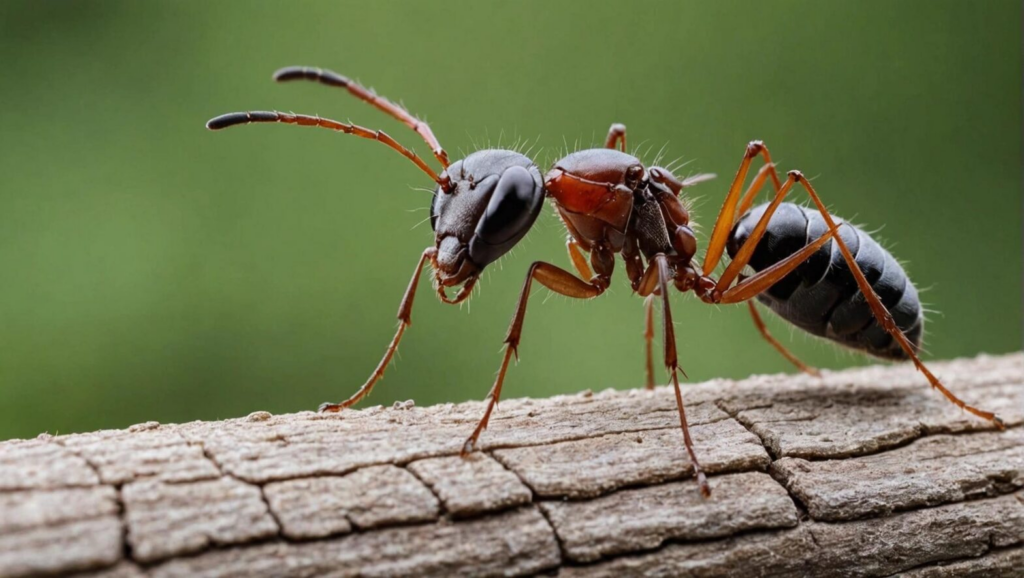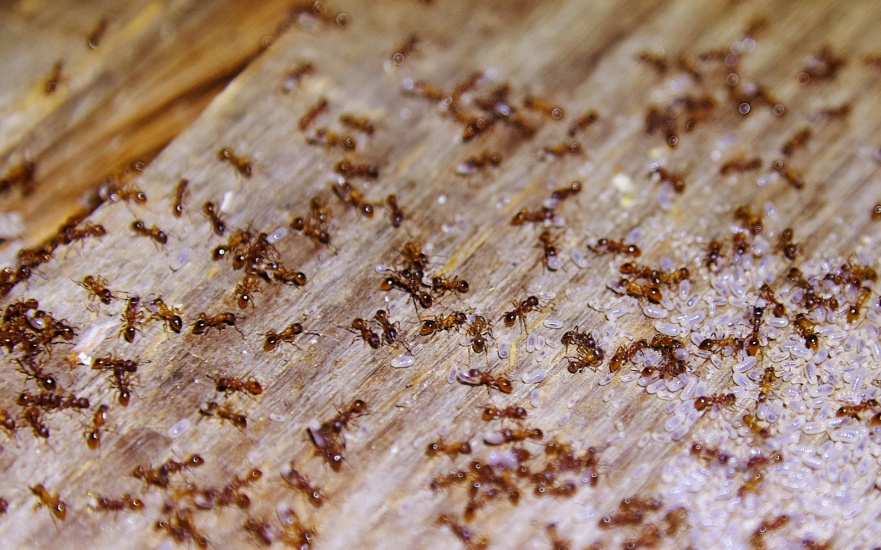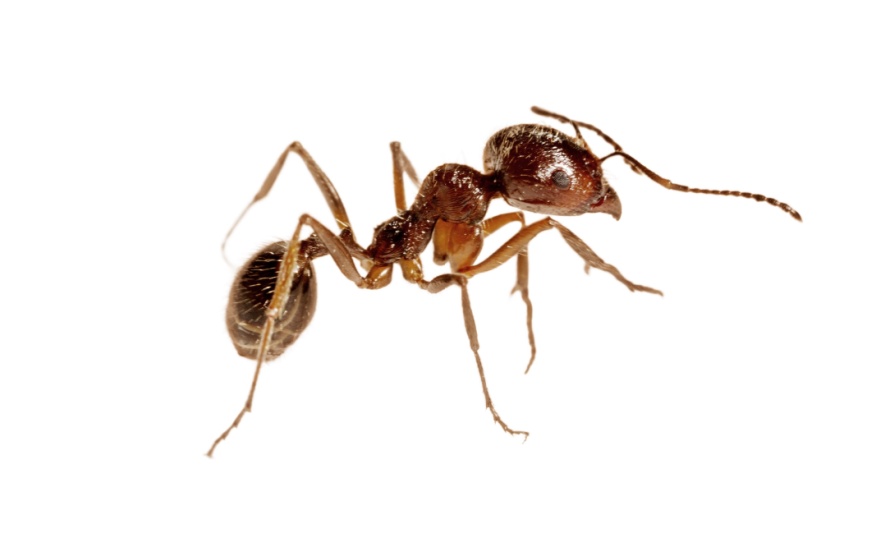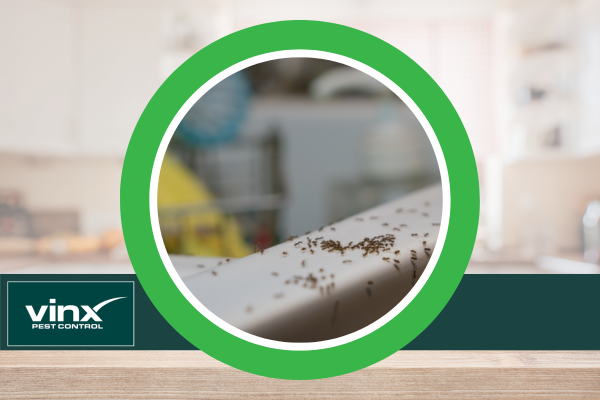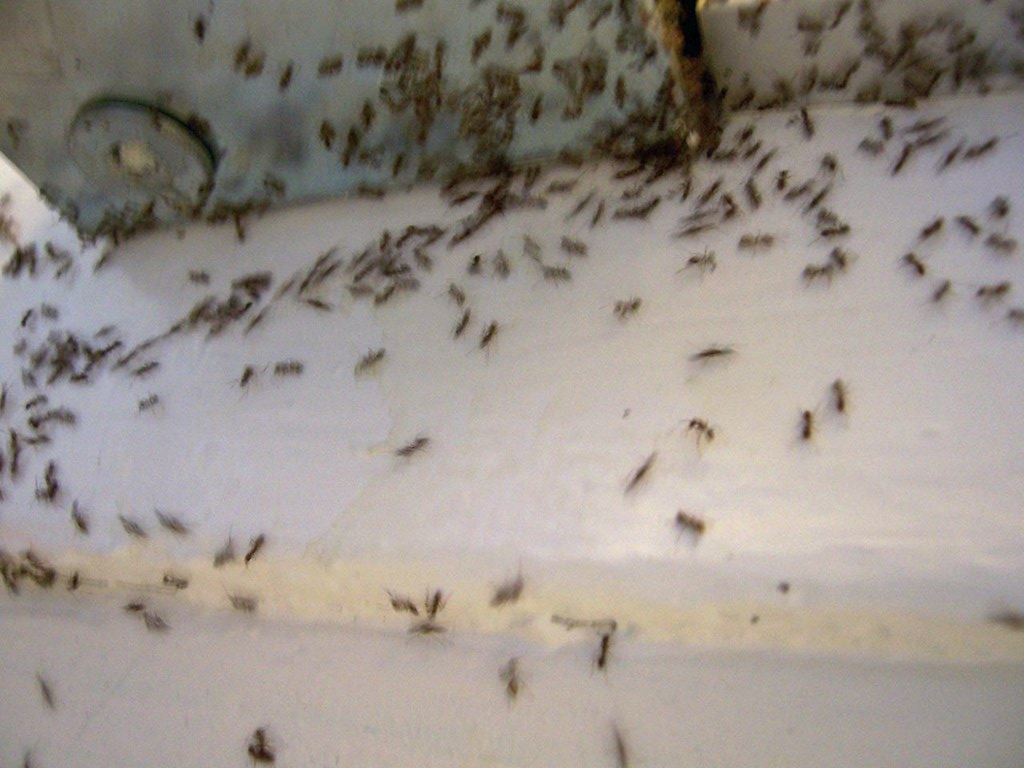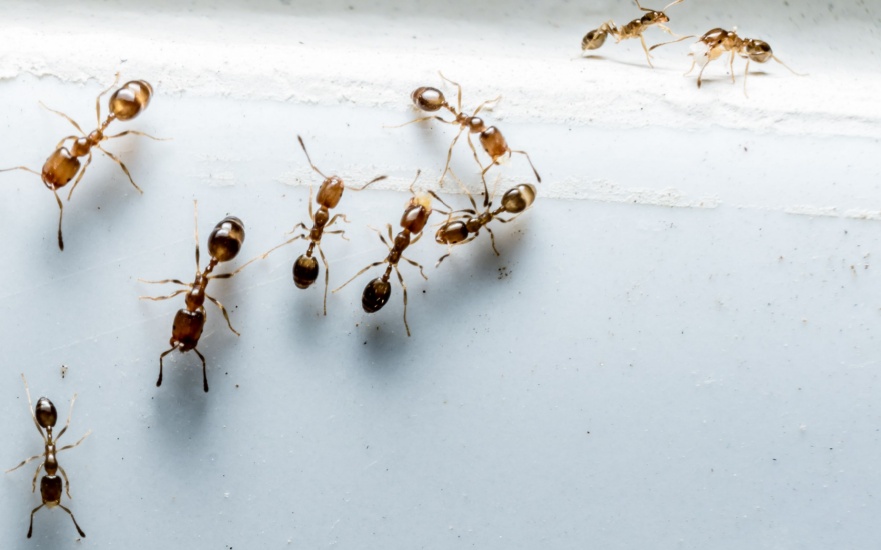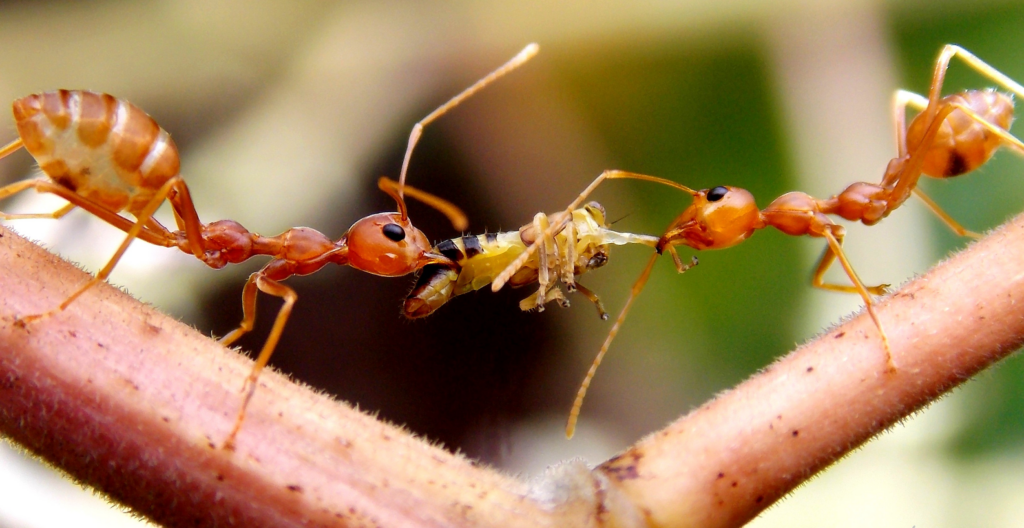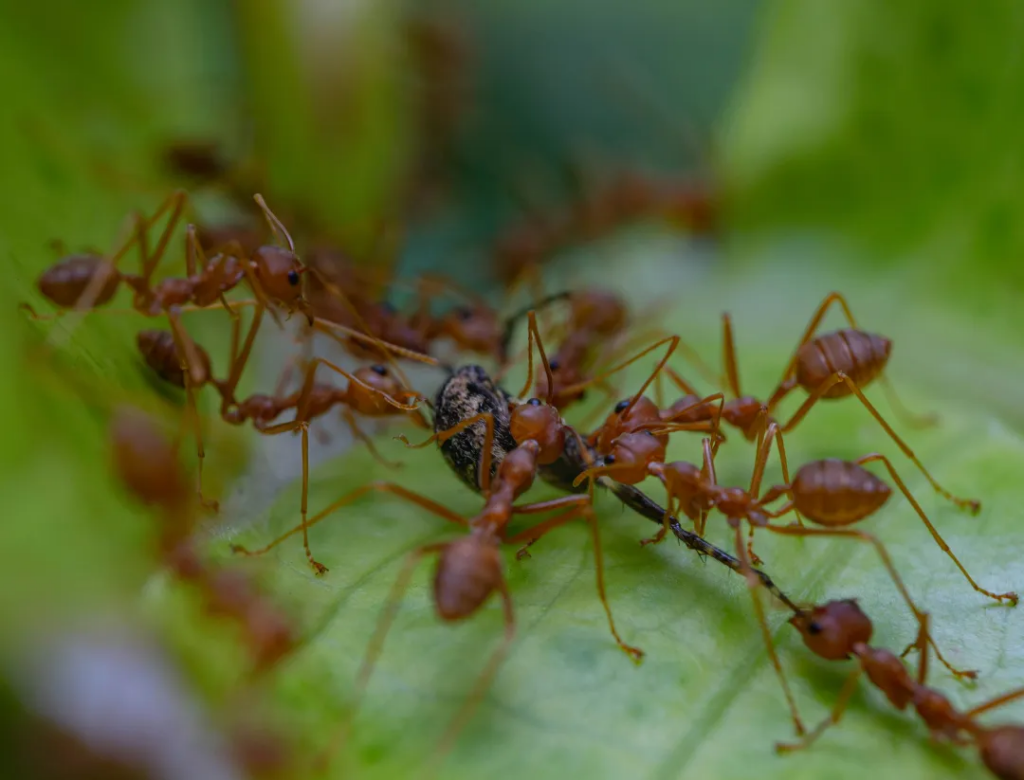Living in Dallas means dealing with pests. Ants are a big problem, causing trouble and discomfort. At Vinx Pest Control, we know how to stop ants and keep your home safe.
It’s important to know about the ants in your area. Different ants need different ways to stop them. We’ll show you how to keep your home free from ants.
Key Takeaways
- Understanding the importance of ant prevention for homeowners
- Identifying common ant species in Dallas
- Effective strategies for ant control and prevention
- Practical tips for maintaining a pest-free home
- The role of Vinx Pest Control in ant prevention and control
Understanding the Ant Problem in Dallas
Dallas’s warm weather and geography are perfect for ants. This makes it hard for homeowners to keep them away. The area’s warm temperatures and occasional moisture help ants grow.
Why Dallas Homes Are Vulnerable to Ant Invasions
Dallas homes are easy targets for ants. They are close to nature and have food and moisture. Knowing this helps fight ant infestations better.
The Impact of Dallas Climate on Ant Activity
The Dallas climate affects ants a lot. Hot summers and mild winters keep them busy all year. Using the right ant control methods is key.
Seasonal Patterns of Ant Behavior in North Texas
Knowing when ants are most active is important. In North Texas, ants behave differently with the seasons. Some ants are more active in warm months, while others seek shelter in cold months. Natural repellents and prevention can help manage these issues.
By understanding these factors and using the right prevention, homeowners can keep ants out.

Common Ant Species in Dallas Homes
Knowing the common ants in Dallas is key to controlling them. Dallas homes face many ant species. Each has its own traits and dangers.
Fire Ants: Identification and Threats
Fire ants are a big problem in Dallas. Their stings hurt a lot and can make skin swell and blister. They are reddish-brown and get angry when threatened.
- Fire ants love sweet things and can spoil food.
- Their stings can be very painful and may cause allergies.
- It’s important to get rid of fire ants to stop them from coming back.
Carpenter Ants: Structural Damage Concerns
Carpenter ants are a big worry for Dallas homeowners. They damage homes by digging into wood to make nests.
These ants are black or dark brown. They are big and have special jaws.
- Carpenter ants like moist wood and might mean your home has a moisture problem.
- They can make your home weak by digging tunnels and nests.
- Putting ant deterrents where they enter can help keep carpenter ants away.
Pharaoh Ants: Health Risks and Challenges
Pharaoh ants are common inside Dallas homes. They carry diseases and can make food and surfaces dirty.
- Pharaoh ants are small and light yellow to reddish-brown. They often come in big groups.
- They can spread sickness and make food dirty, so treating them is very important.
- Pharaoh ants are hard to control because they can resist some treatments.
Other Prevalent Ant Species in the Dallas Area
Other ants like odorous house ants and pavement ants are also found in Dallas.
- Odorous house ants smell like rotten coconut when stepped on.
- Pavement ants live under pavement and might come into homes looking for food.
- Knowing which ant you have helps you choose the best way to get rid of them.
Identifying the ants in your home is the first step to getting rid of them. Using ant deterrents, treatments, and control methods can help keep them away.
Signs You Have an Ant Infestation
Knowing the signs of an ant infestation is important. Ants can show up anytime. Spotting them early helps keep your home safe.
Visible Ant Trails and Entry Points
Seeing ant trails is a clear sign. These lines of ants lead to food. They often enter through cracks in windows, doors, and around pipes or outlets.
Food Contamination Indicators
Ants love food, and finding ants near it means trouble. Check your pantry, pet food, and countertops for ants.
Structural Evidence of Ant Presence
Carpenter ants can damage your home. Look for small holes in wood or sawdust near them. This shows they’re nesting.

Distinguishing Between Occasional Ants and Infestations
Seeing one ant doesn’t mean you have a problem. But seeing many ants in different places is a big sign. Knowing how to stop ants from making homes in your place is key.
By watching for these signs and acting fast, you can stop ants from being a big issue.
Ant Prevention Strategies for Dallas Homes
Dallas homeowners can keep ants away by making a strong prevention plan. Knowing about local ants and how to stop them is key. A good plan can lower the chance of ants showing up.
Creating a Comprehensive Prevention Plan
A good plan has many steps for your home. It includes:
- Checking your home often for ants
- Sealing all entry points around windows, doors, and pipes
- Keeping areas clean where food is made or eaten
- Using strong ant stoppers around your home
For more tips, check out our page on ant prevention tips for Dallas homeowners.
Year-Round Prevention vs. Seasonal Approaches
Preventing ants all year is better than just in certain seasons. This is because different ants are active at different times. Dallas’s weather changes a lot, too.
Combining Methods for Maximum Effectiveness
Using different ways to prevent ants works best together. For example, natural stoppers like essential oils and sealing holes are strong. Also, keeping your home clean and dry makes it less attractive to ants.
Dallas-Specific Prevention Considerations
Dallas’s weather and land make ant prevention tricky. Ants can be active all year because of the hot summers and mild winters. Knowing this helps make better plans to stop ants.
Indoor Ant Prevention Techniques
Keeping your home in Dallas free from ants is key. Even the cleanest homes can get ants. So, it’s important to use good prevention methods.
Focus on important areas and use the right ways to stop ants. This can really help keep ants away.
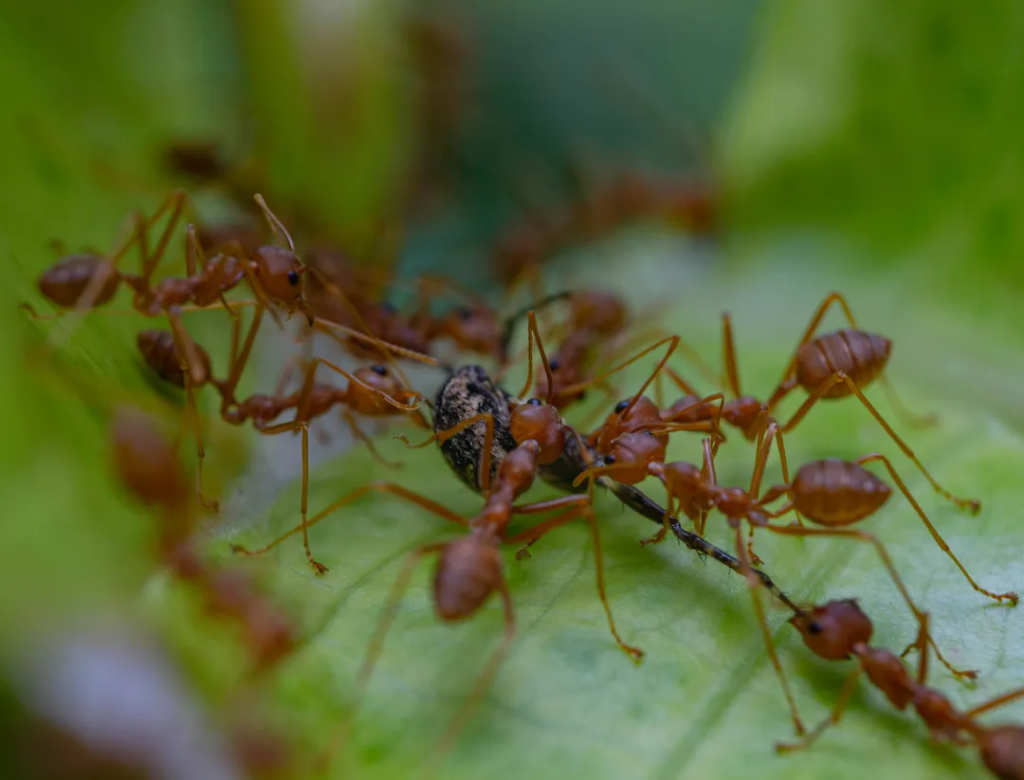
Kitchen and Dining Area Protection
The kitchen is a big risk for ants because of food and moisture. Make sure all food is in sealed containers. Clean up spills right away.
Wipe down counters and sweep the floor often. This removes crumbs and mess. Use effective ant barriers around doors and windows.
Bathroom and Moisture Control
Ants like moisture, so bathrooms are a risk. Fix leaks and make sure there’s good air flow. Dry wet spots fast.
Check for moisture signs and fix them quickly. This keeps ants away from these areas.
Bedroom and Living Space Safeguards
Even though less common, bedrooms and living areas need care. Keep them clean and avoid dirty laundry or mess. This stops ants from coming.
Vacuum often to get rid of ants or trails they leave.
Basement and Storage Area Strategies
Basements and storage areas can get wet and messy. This attracts ants. Make sure these places are dry, well-ventilated, and tidy.
Store things in sealed boxes. Use ant baits or repellents to keep your home ant-free.
Outdoor Ant Prevention Methods
To keep ants out, we need to treat the outside. We can do this with barriers, changing our yard, and keeping outdoor spaces clean. These steps help keep ants away from our homes.
Creating Effective Barrier Treatments
One key step is to put a barrier around our homes. We can use ant control methods like baits or liquids around the foundation.
- Find where ants might get in, like doors and windows.
- Put ant baits or repellents there.
- Check and keep the barrier up to date.
Landscaping Adjustments to Deter Ants
Our yard can help keep ants away. A few changes can make it less inviting to ants.
- Trim trees and bushes away from the house to block ant paths.
- Get rid of standing water and trash to keep ants away.
- Plant ant-repellent plants to naturally keep ants out.
Managing Outdoor Eating Areas
Outdoor eating spots can attract ants. To avoid this, we should:
- Clean up spills right away.
- Put food and trash in sealed bins.
- Avoid leaving sweet or sticky things outside.
Protecting Entry Points to Your Home
Sealing up entry points is key to keeping ants out. We should:
- Seal cracks and gaps around windows, doors, and pipes.
- Use door sweeps or weatherstripping at entry points.
- Check and fix any damaged or loose parts outside.
Natural and DIY Ant Repellents
Looking into ways to stop ants, we find natural and DIY repellents are key. They work well, are simple to use, and good for the planet.
Essential Oil Solutions That Repel Ants
Peppermint, tea tree, and lavender oils keep ants away. Mix a few drops with water and spray where ants come in. You can also mix these oils with other natural stuff for a stronger effect.
Household Ingredients as Ant Deterrents
Cinnamon, cayenne pepper, and citrus peels keep ants out too. Sprinkle them where ants go. Cinnamon’s smell messes up ant paths, making it tough for them to find their way.
Homemade Ant Baits and Traps
Make ant baits with sugar, borax, and water. Put them where ants are. This attracts and kills ants. For more tips, check out our Allen ant control page.
Limitations of Natural Remedies
Natural and DIY repellents are good but might not solve all ant problems. Knowing their limits is key. You might need to use them with other methods for the best results.
Professional Ant Control Solutions
Getting rid of ants needs a good plan. Professional help is usually the best choice. At Vinx Pest Control, we know how to solve Dallas homeowners’ ant problems.
When to Call Vinx Pest Control
If ants keep coming back, even after you try to stop them, call us. We suggest calling when you see:
- Many ants inside, like in kitchens and bathrooms
- Ant trails on walls, counters, or floors
- Damage to wood or other parts of your home
What to Expect from Professional Ant Treatment
Our ant treatment starts with a detailed check to find out what kind of ants you have. Then, we make a special plan for you. This might include treatments around your home and special baits.

Cost-Benefit Analysis of Professional Services
Professional ant control might cost more, but it’s worth it. It saves your home and gives you peace of mind. Our services are made to be affordable.
Integrated Pest Management Approaches
At Vinx Pest Control, we use a smart way to fight ants. We mix prevention, keeping them out, and treatment to solve the problem.
Maintaining an Ant-Free Home
To keep your Dallas home ant-free, use a mix of prevention and upkeep. Always watch for ants, as they can quickly move into your home.
Regular Inspection Routines
Checking your home often is key. Look for cracks and crevices where ants might get in. Check around windows, doors, and pipes for ant trails.
- Check for ant trails and entry points around windows, doors, and pipes.
- Inspect your home’s foundation for any cracks or damage.
- Look for signs of ant activity in areas around food and water sources.
Cleaning Practices That Discourage Ants
Keeping your home clean helps keep ants away. This means:
- Wiping down surfaces and sweeping/mopping floors regularly.
- Cleaning up spills and crumbs right away.
- Not leaving dirty dishes or trash around.
Food Storage and Waste Management
Storing food and trash right is key to avoiding ants. Here’s what to do:
- Use sealed containers for food.
- Keep your kitchen clean and organized.
- Dispose of trash often and seal trash cans.
Ongoing Maintenance Tips
There are more ways to keep your home ant-free. For tips on spotting ants, visit this article.
- Seal any cracks or crevices around your home’s foundation.
- Keep your yard free of debris and clutter.
- Trim trees and shrubs to reduce ant pathways.
Seasonal Ant Prevention Tips for Dallas
As the seasons change in Dallas, ants can become more active. It’s important to change how we prevent them. Knowing when ants are most active helps us keep them away.
Spring and Summer Ant Control Strategies
In spring and summer, ants look for food and start new homes. To stop them, we need to:
- Seal all entry points around the home, including cracks and crevices.
- Keep our yard clean and without standing water.
- Use ant baits and traps where ants are seen most.
Fall and Winter Preparation
In fall and winter, ants may come inside looking for shelter. We must:
- Check our homes for ant signs.
- Seal any new entry points.
- Keep our homes clean and dry to stop ants.
Addressing Weather-Related Ant Invasions
Dallas’s weather can bring ants inside. Rain can push them in, and dry spells make them look for water. We need to change our ant control plans for these weather changes.
Neighborhood-Specific Considerations in Dallas
Different areas in Dallas face different ant problems. Knowing these local issues helps us make our ant prevention plans better.
Conclusion
Ants can be a big problem for homeowners in Dallas. But, you can keep your home safe with the right steps. We talked about how to stop ants from coming in.
Stopping ants needs a good plan. Use natural ways to keep them away and call experts if needed. Keeping your home clean helps a lot.
Vinx Pest Control knows how to keep ants away. Our experts will make a plan just for you. This way, your home will be safer and healthier.
If you need help with ants, contact Vinx Pest Control. We want to help you keep your home free from pests.
FAQ
Q: What are the most common ant species found in Dallas homes?
A: In Dallas homes, you’ll often find fire ants, carpenter ants, and pharaoh ants. Each type is different and needs its own way to be controlled.
Q: How can I identify an ant infestation in my home?
A: Look for ant trails, food that’s been touched by ants, and damage to your home. Checking your home often can spot problems early.
Q: What are some effective ant prevention strategies for Dallas homes?
A: To keep ants away, make a plan to prevent them. Keep your home clean, control moisture, and put barriers around your home.
Q: Can natural and DIY ant repellents be effective in preventing ant infestations?
A: Yes, natural and DIY repellents like essential oils can help keep ants away. But, they’re not perfect. Use them as part of a bigger plan to keep ants out.
Q: When should I seek professional help for ant control?
A: Get help from experts if ants are really bad, if DIY methods don’t work, or if you’re worried about damage or health risks.
Q: What can I expect from professional ant treatment services like Vinx Pest Control?
A: Services like Vinx Pest Control can get rid of ants for good. They find and fix the problem and teach you how to keep ants away.
Q: How can I maintain an ant-free home?
A: Keep your home ant-free by checking it often, staying clean, and storing food right. Also, manage waste well and think about pest services.
Q: Are there any seasonal ant prevention tips specific to the Dallas climate?
A: Yes, in Dallas, get ready for more ants in warm months. Keep ants out in cold months. Watch for ants when the weather changes.
Q: How can I ant-proof my home?
A: Seal up where ants can get in, keep your home clean and dry, and use natural or chemical repellents. Think about getting professional treatments too.
Q: What are some effective ant control methods?
A: Good ant control mixes prevention like cleanliness and moisture control with treatments. Use natural or chemical methods, and get help from pros when needed.



